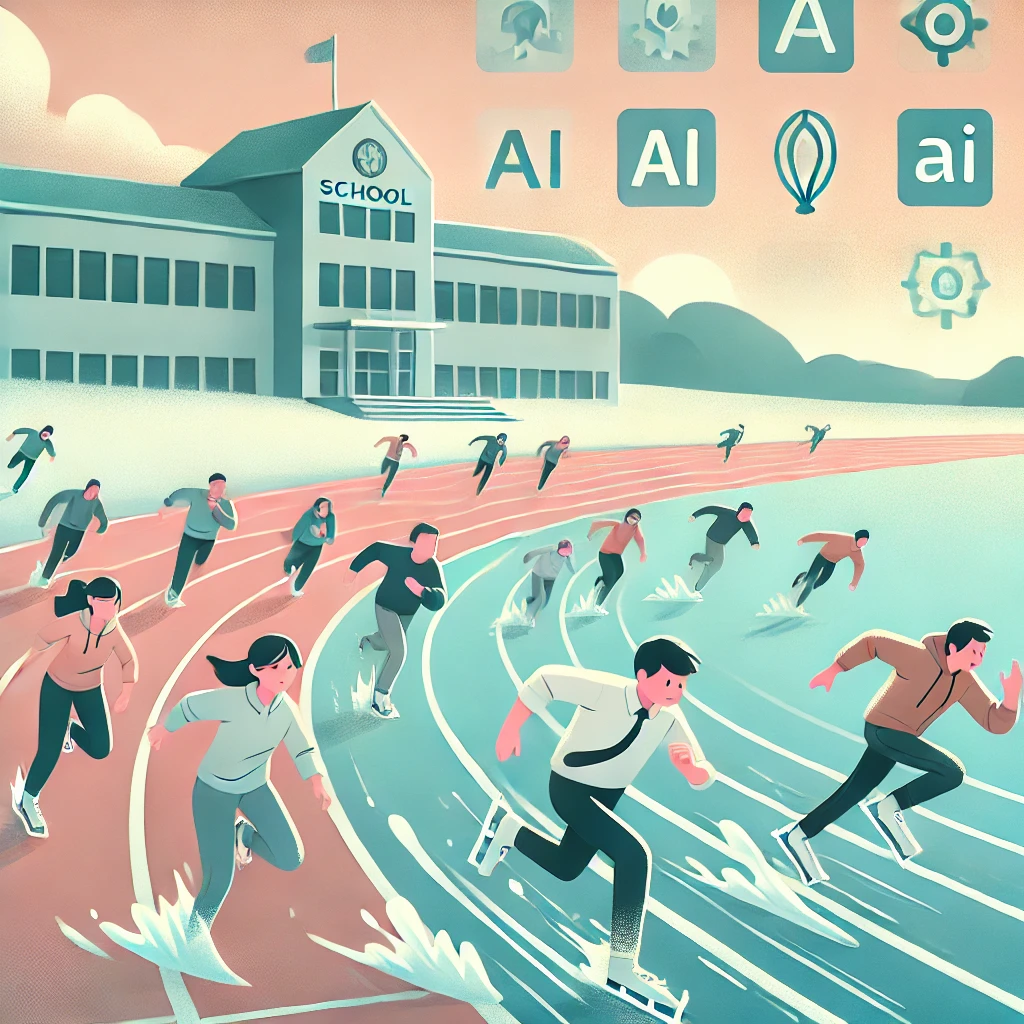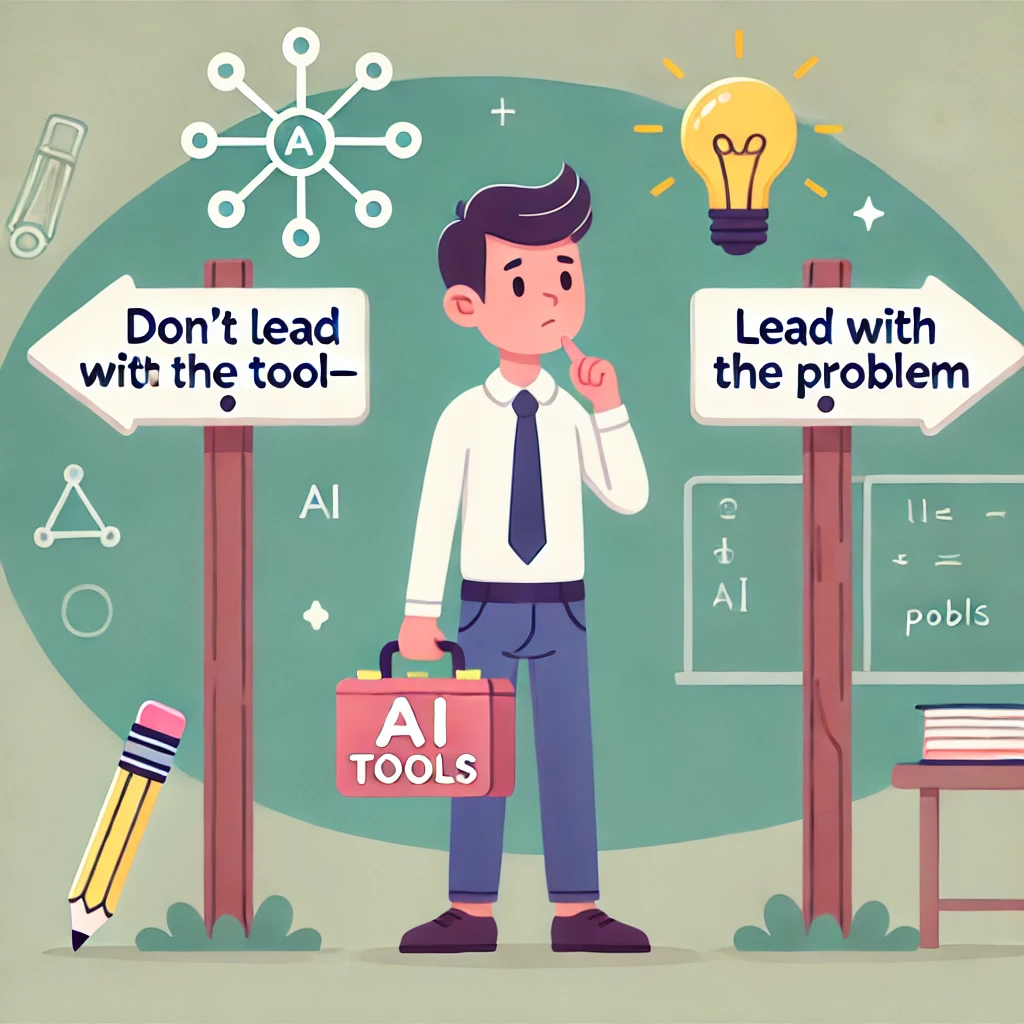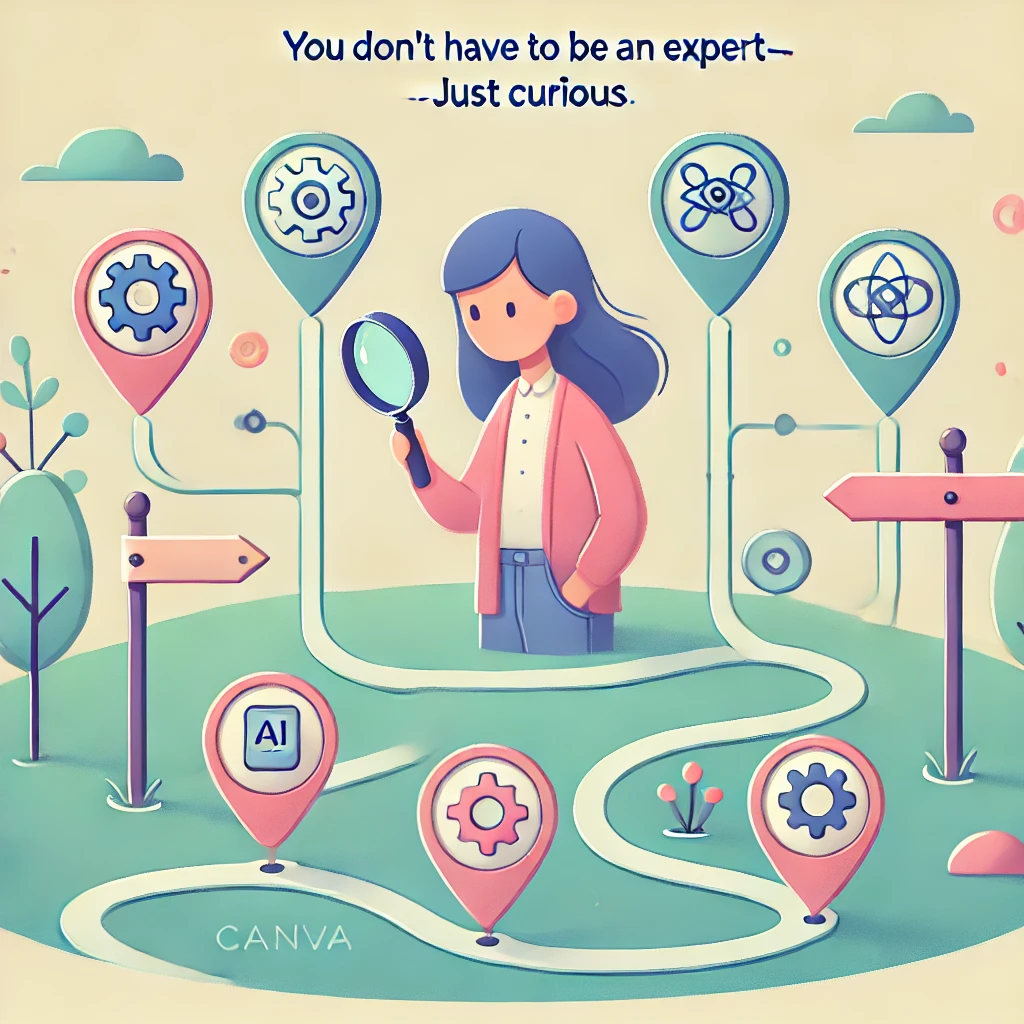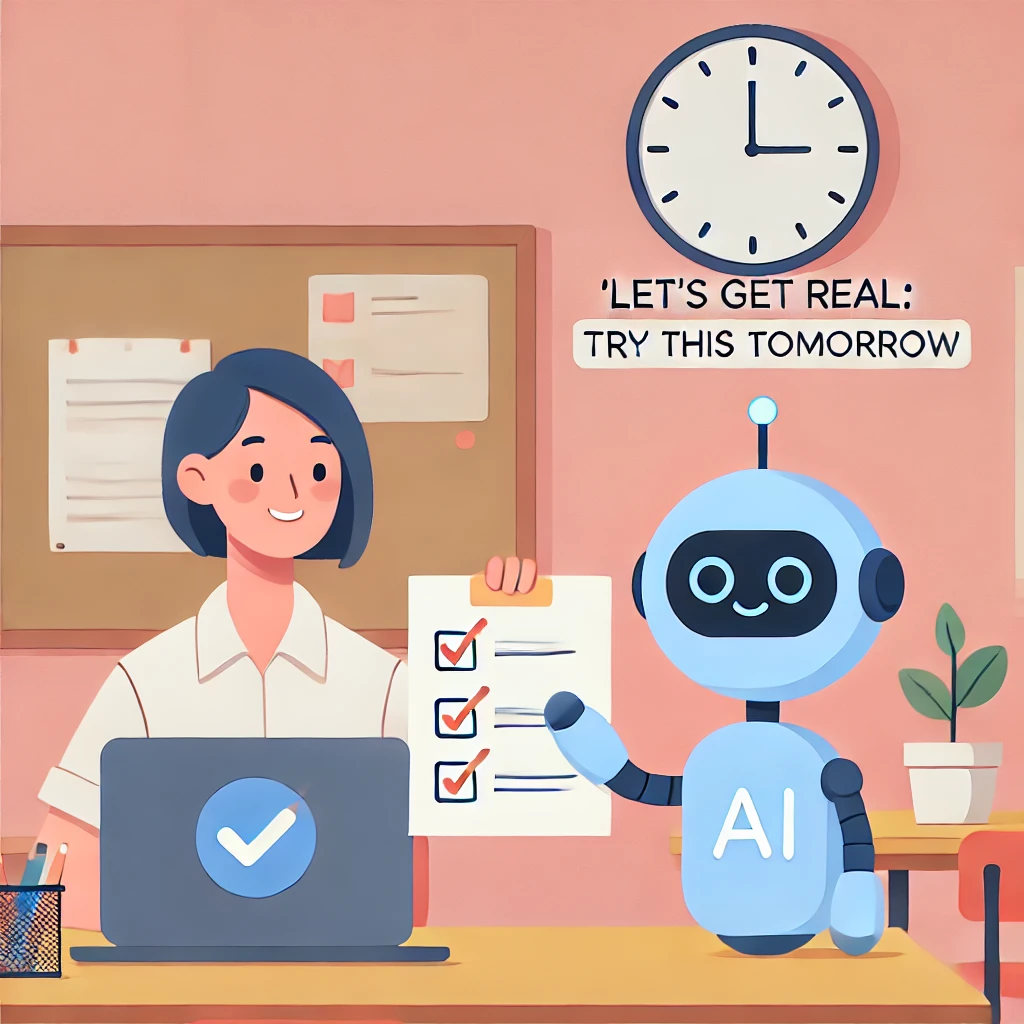Let’s not sugarcoat it: AI is here. It’s in our classrooms. It’s in our inboxes. It’s lurking in every PD slide deck like an enthusiastic intern with zero boundaries and a lot of “game-changing” ideas.
But this isn’t a rant. This is a reality check—from one tired educator to another.
Because let’s be honest: AI isn’t the villain. The rollout is. The way it’s being handed to teachers like, “Here, use this thing that could rewrite your whole job description. No pressure!”
And look, admin isn’t to blame. They’re just as overwhelmed. Nobody’s sitting in an office somewhere cackling, “Let’s see if they can figure out ChatGPT with 8 minutes of training and zero planning time.”

We’re all sprinting. The problem is, the track changed to an ice rink mid-race, and everyone in education, teachers and administrators alike, is just learning to skate.
So here’s the deal. Let’s stop waiting for a fully formed district plan to float down from the heavens. Let’s stop trying to become AI experts overnight. Let’s pick one thing. Make it work. And keep our sanity in the process.
1. Pick ONE Task to Hand Off to the Robots
Start small. Like, insultingly small. What’s one thing this week that is making you question all your life choices?
- Writing rubrics?
- Grading short responses?
- Rewriting your IEP goal language for the 400th time?
Let AI do that. Not everything. Just that.
Try This Prompt in ChatGPT, “Create a 4-point rubric for a 9th grade persuasive essay that includes creativity, structure, grammar, and evidence.”
Then edit it like the control freak we all are. Boom. Time saved.
Repeat weekly. Before you know it, the robot is your new unpaid TA (who doesn’t eat your snacks or ghost you mid-semester).
2. Don’t Lead With the Tool—Lead With the Problem

If you’re starting your lesson plan with, “How can I use AI today?”—stop. Breathe. Sip your coffee. Try again.
Start here instead:
- “My students aren’t retaining vocab.”
- “I spend hours giving feedback.”
- “I’m exhausted and want to go home before the custodian.”
Then see if AI can help. Not because it’s trendy, but because your time is finite and your energy is already in negative digits.
Try This Prompt:
“You are an expert idea generator. List three engaging ways to teach ‘theme’ to a group of uninterested 7th graders in a culturally diverse suburban community using modern YouTubers and TikTok trends they are likely to know. Send links to social channels and posts with your idea list.”
If it sparks something? Run with it. If it just isn’t in your wheelhouse, tell the robot why, pick the closest, and tell it to try harder. Or, close the tab. No guilt. Robots don’t judge. They just do.
3. Let AI Plan With You, Not For You

AI isn’t your replacement. It’s your co-planner who never needs coffee and doesn’t interrupt you to show off a Pinterest board.
Use it to break through the Sunday Scaries.
Try This, “I’m teaching photosynthesis to 5th graders. They’re confused about chlorophyll. Give me an analogy using tacos.”
(It works. Chlorophyll = salsa. Trust me.)
4. There Are Things AI Cannot—and Should Not—Do

It can’t read your students’ faces.
It doesn’t understand the weird tension in 3rd period.
It will never notice that one kid who’s suddenly way too quiet.
So don’t use it for that. Use it to give you more time to show up for that.
Boundary Reminder, “If the task requires empathy, judgment, or nuance, keep it on your plate. If the task makes you want to throw your laptop out the window? Delegate.”
5. You Don’t Have to Be an Expert. You Just Have to Be Curious.

This isn’t a tech class. You don’t need to become a “Certified AI Innovator of the Month.” You need to stay afloat. That’s it.
Try This Challenge With a Colleague:
- Pick one AI tool.
- Use it on the same lesson or task.
- Swap notes.
- High five.
Go back to doing what matters most, you know, like complaining about how they scheduled another fire drill during testing. (No judgement, I do it, too!)
6. Your Admin Isn’t Out to Get You—They’re Just as Dazed
Let’s give them some credit. They’re navigating a tidal wave of mandates, software updates, and budget gaps the size of Canada.
The fact that they even mention AI in staff meetings means they’re trying. But the system is moving too fast. (See above for track analogy, they are also running/skating.)
So don’t wait. Make your own plan. Start with what you need, not what sounds impressive.
Start a Team Doc Called “AI Stuff That Isn’t So Bad Afterall”
Every time someone finds a great prompt or time-saving tool, drop it in. Think Pinterest board, but for exhausted educators trying to survive the singularity.

Let’s Get Real: Try This Tomorrow
If you’ve skimmed everything else (no judgment), just try this:
- One task you hate
- One AI tool
- One result you actually use
That’s it. That’s your entry point. Then share what worked and keep going.
Because AI isn’t a threat. It’s not magic. It’s not even all that smart.
But used right, it’s the first thing in a long time that might give teachers a little breathing room—without asking for another unpaid hour or Pinterest-worthy bulletin board.
And honestly? That’s enough for now.
Join our community
If this hit home or sparked an idea, let’s keep the conversation going. You can find me on Instagram, Facebook, Twitter, LinkedIn, or in our private Facebook Group, ” for more classroom chaos, edtech hacks, and the occasional caffeine-fueled truth bomb. Want to trade strategies with other educators who get it? Join my private Facebook group “Teachers Using AI (Without Losing Their Minds)”—it’s where we share real wins, real questions, and a whole lot of “same.” Come hang out. You’re not supposed to do this alone.